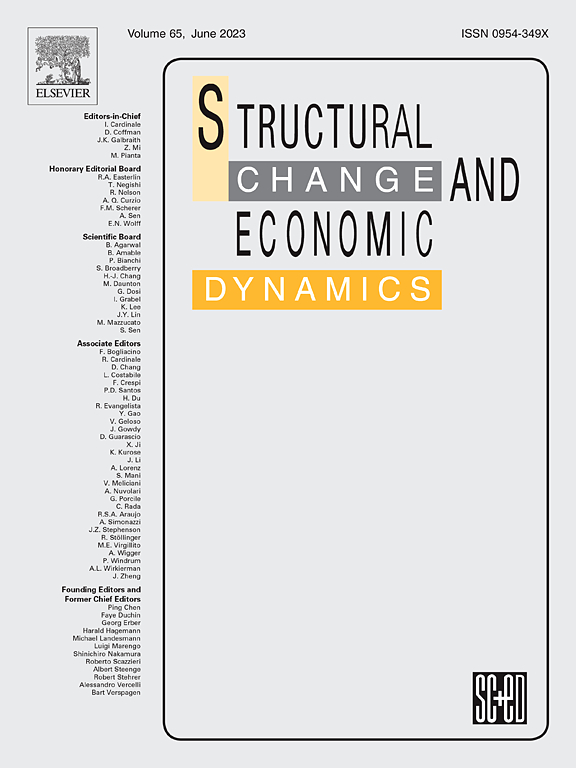Beyond informal employment: Stagnation and disguised employment in Brazil
IF 5.5
2区 经济学
Q1 ECONOMICS
引用次数: 0
Abstract
This study analyses the Brazilian labour market from 2014 to 2019, focusing on the impact of the country's growth pattern on rising informal and self-employment. After a period of economic growth, Brazil faced a recession (2015–2016) and stagnation (2016–2019). Austerity-driven reforms were implemented, weakening policies aimed at stimulating growth, reducing unemployment, and improving formalization. Using structural decomposition analysis within a demand-driven input-output model, the study examines how changes in demand components affected employment by sector, formalization, and occupational status. Key findings reveal that the slow economic recovery, characterized by limited investment and government spending, led to a significant shift from formal to informal employment and self-employment, especially in service sectors. While discussing the diversity hidden within the occupational category of self-employed workers, the research also explores the specific characteristics of this category, providing insights to understand possible disguised employment as part of a structural transformation.
非正规就业之外:巴西的停滞和变相就业
本研究分析了2014年至2019年的巴西劳动力市场,重点关注该国的增长模式对非正规就业和自营就业上升的影响。经过一段时间的经济增长,巴西面临衰退(2015-2016)和停滞(2016-2019)。实施了紧缩驱动的改革,削弱了旨在刺激增长、减少失业和改善正规化的政策。在需求驱动的投入产出模型中使用结构分解分析,该研究考察了需求组成部分的变化如何通过部门、形式化和职业地位影响就业。主要调查结果显示,经济复苏缓慢,其特点是投资和政府支出有限,导致从正规就业到非正规就业和自营职业的重大转变,特别是在服务部门。在讨论个体经营者职业类别中隐藏的多样性的同时,该研究还探讨了这一类别的具体特征,为理解作为结构转型一部分的可能的变相就业提供了见解。
本文章由计算机程序翻译,如有差异,请以英文原文为准。
求助全文
约1分钟内获得全文
求助全文
来源期刊

Structural Change and Economic Dynamics
ECONOMICS-
CiteScore
9.60
自引率
4.90%
发文量
159
期刊介绍:
Structural Change and Economic Dynamics publishes articles about theoretical, applied and methodological aspects of structural change in economic systems. The journal publishes work analysing dynamics and structural breaks in economic, technological, behavioural and institutional patterns.
 求助内容:
求助内容: 应助结果提醒方式:
应助结果提醒方式:


